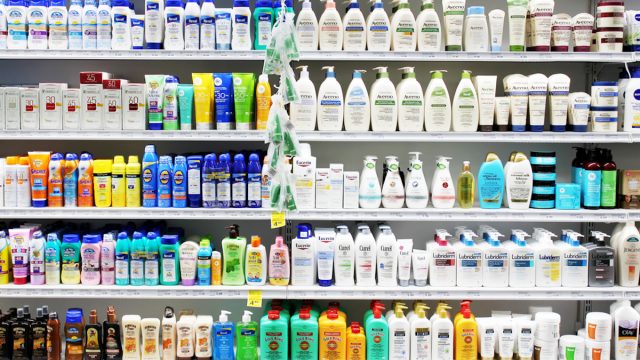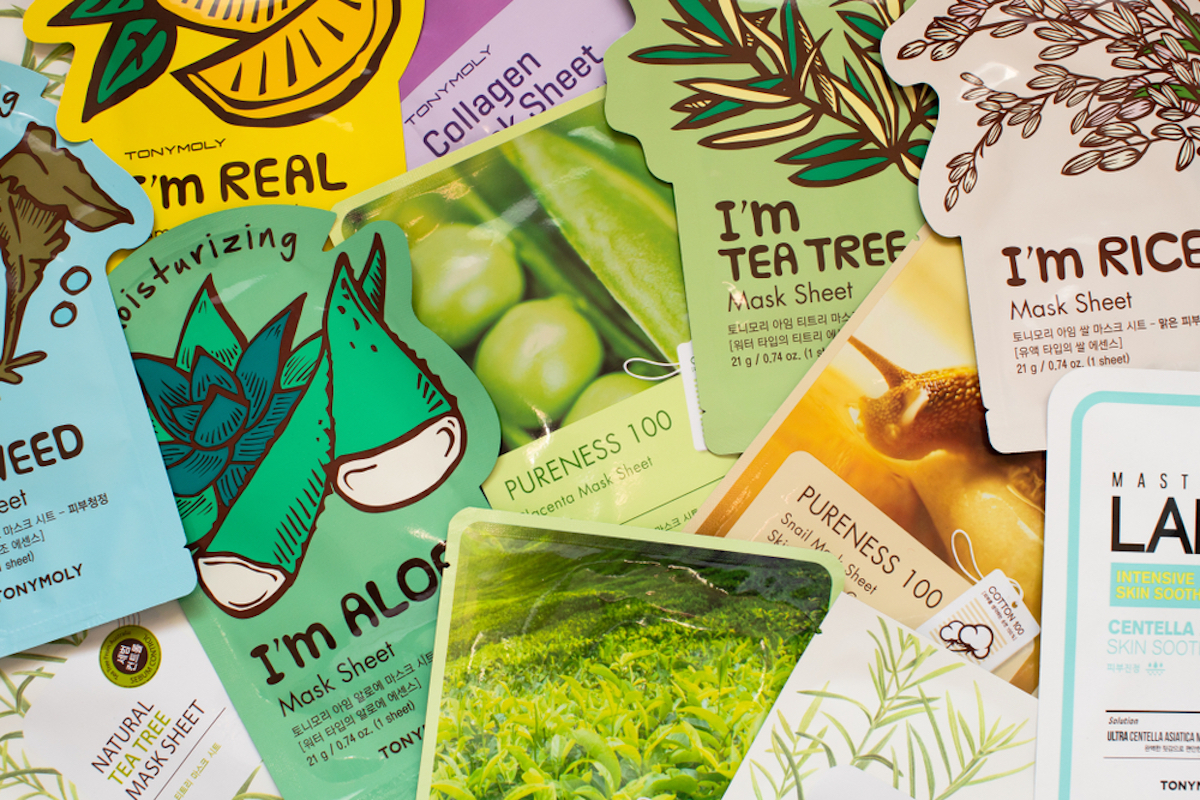This Beloved Beauty Product Is Starting to Get Banned

With a growing awareness of our need to reduce waste, single-use plastic is being removed from more and more areas of our everyday lives, from plastic bags to plastic straws. Now that reusable coffee cups and water bottles are becoming the norm, more niche items made of wasteful materials are being phased out, too—and the latest is a mainstay of home spa treatments around the world. Yes, one beauty retailer just announced its sheet mask ban and others are soon to follow. Read on to learn more and for another nixed item to be aware of, read about how Nordstrom Just Made History by Banning These Products.
Who is banning sheet masks?

Clean beauty retailer Credo recently announced in an industry first that it is stopping selling sheet masks, along with other single-use skincare products, including makeup wipes and exfoliating pads. They have set June 2021 as the cutoff date for the product.
“‘Clean’ has to include sustainability,” Mia Davis, Credo’s Director of Environmental and Social Responsibility, said in an interview with Elle. “We realized that prohibiting these items [at Credo] would, at a minimum, keep 3,000 pounds of trash out of the landfill.” And for another company trying to be more sustainable, check out Ikea Will Start Selling This for the First Time Ever.
It’s a growing movement in the industry.

Lauren Singer, the environmental activist and founder of Package Free Shop, is similarly critical of the product, telling Vogue in 2019 that sheet masks are “unnecessary, they’re superfluous, they come wrapped in plastic.”
Susan Stevens, CEO of Made With Respect, takes a similar line, pointing out to Vogue, “In the case of sheet masks, there’s a pouch, the mask, and sometimes the mask is wrapped in a plastic sheet.” And if you’re looking to live a more sustainable life, check out these Easy Ways to Make Your Home More Eco-Friendly.
The masks aren’t the whole problem.

This is a large part of the problem with sheet masks—not just the package itself, but the excessive amount of packaging in which it comes. These pouches are often made from a combination of aluminum and plastic that cannot be recycled in standard facilities. Even when the masks themselves are made from cotton, the beauty ingredients they are infused with can contain synthetic polymers, which prevent composting. Similarly, those made from nylon will end up in landfill. The Environmental Protection Agency’s most recent figures show that packaging waste in the U.S. added up to 80.1 million tons in 2017, almost a third of municipal waste. And for more ways to adjust your behavior, here are The Worst Habits for the Environment.
What are the alternatives?

Brands like Maskologist make masks from plant cellulose, which is fully biodegradable, while others are moving to paper masks and minimal packaging.
Moving away from unsustainable sheet masks may seem like a small thing, but it’s an easy first step to take. And with more brands coming up with sustainable solutions, there’s going to be plenty to try. And for more ideas on how to be more eco-friendly, here are The Best Ways to Help the Environment, Starting Right Now